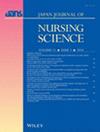Women's experiences of breastfeeding after a cesarean section: A meta-synthesis
Abstract
Aim
The World Health Organization and United Nations Children's Fund recommend the early initiation of breastfeeding within the first hour postpartum for successful exclusive breastfeeding. However, cesarean section is a risk factor for unsuccessful early initiation of breastfeeding. Herein, we aim to explore women's experiences of breastfeeding after a cesarean section.
Methods
We used the Joanna Briggs Institute framework in this meta-synthesis. We searched articles published from 1990 to 2022 on PubMed, CINAHL, Cochrane library, PsycInfo, and EMBASE to identify qualitative studies on women's experiences of breastfeeding after a cesarean section. We used the Critical Appraisal Skills Programme checklist for qualitative studies to assess the quality of the included studies.
Results
Seven qualitative studies from five countries met the inclusion criteria, representing the views of 194 women who underwent cesarean sections. Six new categories were integrated into the women's experiences of breastfeeding after a cesarean section as follows: (i) Perceived values of breastfeeding, (ii) Emotional vulnerability in breastfeeding, (iii) Physical difficulties in breastfeeding, (iv) Inconvenient conditions in breastfeeding, (v) Inadequate resources for breastfeeding, and (vi) Support systems to enable breastfeeding.
Conclusions
We provide evidence showing that knowledge of the specific breastfeeding mechanism and provision of the most appropriate postsurgical care by healthcare providers just after a cesarean section can reduce the barriers to post-cesarean breastfeeding. Moreover, effective hospital policies and family support can result in the initiation of positive breastfeeding outcomes. Future studies that consider the cultural aspects of breastfeeding practice may generate additional insights into providing optimal postpartum care.

 求助内容:
求助内容: 应助结果提醒方式:
应助结果提醒方式:


